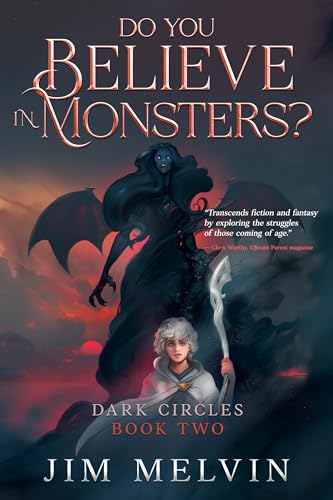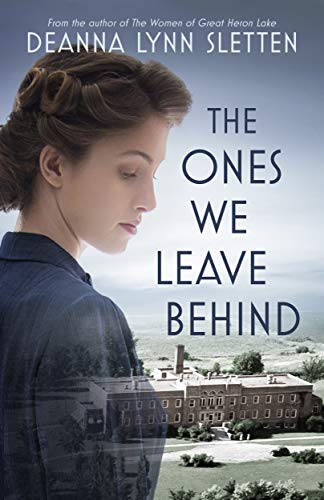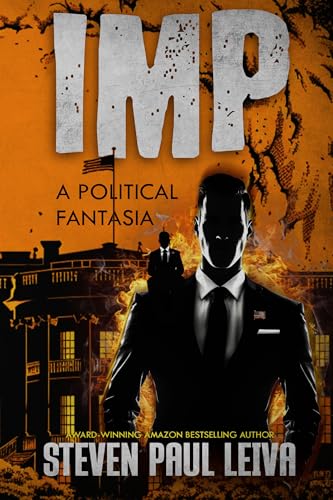an excerpt from
Strange Worlds
by Paul Clayton
Copyright © 2014 by Paul Clayton and published here with his permission
The Triumph
Guinevere O’Rourke approached the steps of the Sea Haven High School gymnasium and paused. Across the street, the gold cross atop Holy Redeemer Church caught the light of the setting sun. The sight soothed her a little. A scream came from inside the darkened gym. The cries and calls of the townspeople, those still locked up inside the equipment room, were heart rending.
“Gwinney!” someone shouted.
Guinevere recognized the voice as belonging to Mr. Stroud, the owner of Stroud’s Candy up on the boardwalk. In his sixties, Mr. Stroud was still a powerful man. He’d been a volunteer fireman since his twenties. She remembered his hairy, muscled arms lifting her up onto the fire truck at the Veterans Day parade.
“Gwinney!” His voice broke with emotion. “Help me, please, for Christ’s sake.” He said something else but his words were drowned out by the pitiful cries of the others imprisoned inside.
She tried not to listen. They screamed at her to save them. She was trying, damn it! That’s why she was here. And maybe, just maybe, she would. Dr. Katz seemed to think they could. But they, she, wouldn’t really know until she went in—there. And in order to do that she had to steel herself—for every molecule in her body was screaming at her to turn and run and never stop running. So she shut out their pitiful screams, concentrating instead on the hymn that her grandma used to hum in her last days, when the pain of her cancer was too much for her.
Guinevere’s body felt afire. She wiped the sweat from her brow. The day was cool but the dye Dr. Katz had injected into her veins was still heating up her blood. Dr. Katz had said the effect would only last about a half an hour. And that meant that they had to do this thing right away if it was going to work.
Guinevere had found Dr. Katz in his offices. It was the day after The Thing had rounded up half the population of Sea Haven by sending them the notice. Typed on County stationary, It told them to come in and pick up a check, their part of the class action suit the County had filed against the Army Corp of Engineers for their dredging in the bay. It was a good ploy. Money talked, as the saying went, and they had all walked right on down to line up at the school hall that morning. And The Thing had gotten hold of them all as easily as ordering four dozen pizzas over the telephone.
Guinevere had gotten the notice too, but had not gone. She had been so depressed over David’s walking out of her life, that free gold bars would not have gotten her out of the house.
Strange, she thought, as she stood facing the school gym, the screams and cries ringing in her ears, she couldn’t bring David’s face to mind anymore, nor his lame excuses. She now realized how petty that loss was compared to what so many others on Sea Haven had lost, and what she could possibly lose here and now.
Be positive, she told herself. Remember Grandma. Remember the hymn. “Glory, glory, glory…” That was all she remembered. The melody gave her strength and she hummed it under her breath, partially drowning out their cries. Remember what Dr. Katz had said, she scolded herself. He believed in her. And he believed this plan would work. In fact, he had showed her the dye working. Well, sort of, under a microscope. And if it didn’t work they were both dead anyway, for it would find them eventually as it had all the others.
There was no way out of Sea Haven. All the boats were gone and the causeway had been severed by a gravel barge which mysteriously floated free of its mooring on the night when it all began. That’s what one of the men in the equipment room had said.
And what in God’s name was happening on the mainland? There was only the hiss of static on the radio, noisy white snow on the TV. After driving around for hours, Guinevere had found Dr. Katz at the medical building. She had opened a door and there he was, looking into a microscope.
“You surprised me,” Dr. Katz had said, “I had no idea there was anyone left free.”
Guinevere shook her head. “No one but me, as far as I know. I drove all over until I ran out of gas.”
Dr. Katz was middle age chubby, with soft brown, expressive eyes. He stuck a finger under his yarmulke to scratch his scalp. “He has the entire town’s Rh’s.”
“Not all of them” said Guinevere.
“You’re Rh?”
Guinevere nodded. “I got the letter telling me to go to the school but didn’t. Why did It corral Rh’s?”
Dr. Katz frowned. “I’ve found some drained of their blood. He evidently needs it to survive.”
Guinevere’s stomach twisted at the thought.
“They’re the lucky ones,” said Dr. Katz. “The others…”
“I know,” said Guinevere. “I was in the cage, you know, the equipment room at the gym.”
Dr. Katz’ face was rapt with interest.
“But how did you end up in there if you didn’t go with the others when you received that notification?”
Guinevere cried softly. “It…took me there. I was asleep. I remember waking suddenly and being aware of something in the bedroom with me. I think It drugged me because that’s all I remember and the next thing I know I’m waking up in the cage with the others.” Guinevere shook her head as if trying to shake the memory.
“How did you escape?”
“I was in the back when It showed up at the door. It was really dark. Then It stuck its arm, or foot through. Everybody screamed and ran to the back so It wouldn’t pick them. I was pushed up against the fence. Some man… he was unconscious on the floor… had sawn some of the chain links of the fence open with a key or something. There was just enough room for me to squeeze through. Some older guy tried to follow me but I think It got him when he got stuck.”
Guinevere shuddered at the thought. “What is It, anyway?” she said.
“An annelid, but a manmade variety.”
Guinevere’s face screwed up in disgust. “Annelid?”
“Annelid worm, you know, leeches. It has human DNA too and is probably some kind of human/annelid hybrid.”
“But how can a worm be so strong?”
Dr. Katz smiled a sad little smile. “Ever try to put one on a fishhook? Relative to their size, they’re hundreds of times stronger than a human.”
“Oh, God.” Guinevere’s heart began pounding. “There’s gotta be a way off the island?”
Dr. Katz shook his head. “No.” He began putting on his backpack. “I’m afraid not.”
“Where are you going?” she asked.
“Where it all started. GenecisTech. I need more samples.”
“I’m going with you.”
***
The sun was setting as they parked Dr. Katz’ Volvo in the GenecisTech parking lot. The building was low, modern, and window-less, with handprint-activated security systems in every room. It covered a city block. Guinevere remembered the controversy when they had started building it. Initially a lot of people were against it. She remembered Father Fahey and some nuns, and other, mostly older people, marching around in a little circle out front with their signs. Nobody else seemed to have had the experience or vision to anticipate something like this.
‘Vampires,’ her friends had disparagingly called the protestors. But money flowed in and GenecisTech was built. Guinevere recalled how hardly any of the GenecisTech employees lived on the island. Every evening they’d get into their little luxury cars and race across the causeway to the mainland, every evening that is, until ‘that’ evening.
The glass doors and metal frame of the main entrance were smashed outward as if someone had driven a car through it. Somewhere deep inside the building a fire alarm rang. Dr. Katz swung his backpack off his shoulder and took out a plastic bag and a pair of metal tongs. He knelt to pick up something that looked like black gelatin.
“Sample,” he said, dropping it into the bag. He got to his feet. “Let’s go.”
The building was a shambles, with broken glass everywhere, some walls smeared with blood. All the doors had been smashed through. They entered a small office and Guinevere stopped. Two booted feet stuck out from under a large polished mahogany desk. Dr. Katz gave one a tug and it came clear of the desk, just a booted foot, a shattered tibia protruding from it.
Guinevere’s eyes clenched shut. She felt faint.
Dr. Katz got to his feet and led her back out into the hallway. “Are you okay?” he said.
She nodded, unable to speak.
They continued their exploration, coming to a door leading into a large lab with strange machines, refrigerators and computers. Dr. Katz paused.
“Is it safe here?” Guinevere asked. “I mean, what if It comes back here?”
“He moves rather slowly, from what I’ve gathered. We’re safe for now.”
“Why do you keep saying he?”
Dr. Katz shrugged. “Well, It’s neither he nor she. I just say he because it’s easier.” He pushed open the door of the lab. “I’m going to see if there’s any salvageable gear, then run some tests.”
He looked at her momentarily. “Maybe you can locate that alarm and turn it off.”
Dr. Katz went inside, broken glass crunching under his feet.
Guinevere moved down the corridor toward the sound of the alarm. Dim emergency lights lit the hallways. Passing several darkened rooms, she came to a brightly lit room from which came the whir of computers. A dull thump, followed by a metallic click, sounded every now and then as if someone were pushing a switch somewhere.
Guinevere stepped over the rubble and went inside. She saw a large monitor, computer code scrolling across the screen. Racks of servers whirred busily, little LEDs blinking. The thump and click came again from the other side of a row of file cabinets. Guinevere frowned. The cabinets seemed to have been hastily stacked as if to create a defensive barricade.
Guinevere walked the length of the room, coming to a gap of about three inches. She peered through and saw someone’s arm with what appeared to be silver bracelets around it. Their hand was poised on a handprint identifier mounted on the wall. The hand pushed against the identifier with a click and the facing plate of the identifier lit. The arm relaxed, but its owner did not remove his hand from the identifier.
“Hello?” Guinevere called.
They didn’t answer. Guinevere frowned and followed the cabinets to the end of the room. The last one lay on its side and she stepped up onto it. She froze at what she saw—a severed arm was attached to the wall with metal brackets—the bracelets she’d seen. The stump of the arm was enclosed in a plastic bag with clear plastic tubing running into and out of it. A human heart had been attached to the wall at the other end of one of the tubes, a plastic bag full of blood hanging from it. Colored wires connected it all up to the computer.
The computers whirred suddenly and the heart convulsed, sending a red spurt of blood through the tube to the arm, which then flexed spastically, driving the hand into the plate of the identifier with a click. Guinevere felt faint, leaning against the cabinet to steady herself.
“Every time the mainframe needs a permission, It sends a signal to his arm, driving the hand into the identifier.” Dr. Katz was standing behind her.
“Jesus,” said Guinevere, revulsion threatening to sicken her, “whose arm?”
“Probably the CEO’s.”
Guinevere shook her head in disbelief. “God… tearing someone to pieces like that and then using the parts. It’s so gross, so…”
“It’s evil,” said Dr. Katz. He ripped the wires from the gruesome machine. “And evil has always been with us. Sometimes it dresses up in snazzy uniforms, sometimes in white smocks.”
Dr. Katz scanned the racks of computers. “It would be very interesting to get into the system and see what he’s up to. But there’s more important work to do now.” He led Guinevere back out into the hall.
“Let’s see if we can find that alarm. It’s giving me a headache.”
They walked down the corridor. Dr. Katz opened a fire escape door and a metallic cacophony assaulted them. He opened a circuit box and threw a switch. Thick silence like wet cardboard hung heavily.
***
In the lab, Guinevere stared out the window at the blackness. A squall was passing overhead, wind-driven rain splattering noisily against the glass. Dr. Katz worked at one of the tables. Every so often she glanced at the darkened doorway. Dr. Katz didn’t think It could catch them here, but Guinevere wasn’t so sure.
“Guinevere. Come here.”
She walked over. Dr. Katz was smiling.
“Look in there and tell me what you see.”
Guinevere peered into the microscope. “It looks like wool or felt.”
Dr. Katz shook his head. “It’s him. A very dead piece of him.”
“Is that the stuff you found by the door?”
“Yes. I added a dye to make it easier to view the cell structure and it caused a total breakdown.”
“How does that help us?”
“If he ingests the dye, even a tiny amount, he dries up. Ever see what happens when salt is applied to a snail?”
Guinevere nodded. “But how do we get dye into him?”
“If the dye…” Dr. Katz paused, his brown eyes looking deep into hers, “if it was in the blood of one of the Rh’s, and he attempted to feed off them…”
Guinevere’s heart leapt in her chest at what he was suggesting. She certainly could never go back there and allow herself to be some kind of bait!
Dr. Katz’ kindly brown eyes seemed to read her mind. “If I could get close enough to the cage I could inject the others… or him.”
Guinevere nodded tiredly. “I have to get some sleep.”
Dr. Katz smiled sadly. “Of course.” He turned around to his microscope.
***
Guinevere laid her head back in a big swivel chair, willing sleep to come. It wouldn’t. Every time she was at the point of drifting off she’d dream that The Thing was approaching and jerk to wakefulness. How could people create such a thing, her mind raged? Didn’t they anticipate the dangers?
Guinevere sat up. Her heart was pounding and she was soaked with sweat. The lights were dim. Dr. Katz worked with his back to her in a soft pool of yellow light. She had to get away, but her gas tank was empty. She remembered Dr. Katz’s Volvo. She got quietly to her feet. She crept soundlessly to the entrance and went out.
The rain had stopped, leaving scattered puddles in the parking lot. Guinevere peered into the Volvo. The keys were in the ignition. She got in and started it, driving slowly down Atlantic Avenue. She turned onto the causeway. At the straightaway, she stepped down hard on the accelerator. ‘Careful,’ a voice in her head said, ‘the causeway’s been severed.’ That’s what the man in the cage had said. Maybe it was a lie, or maybe he was mistaken, she thought frantically as she sped down the darkened highway. Her mind raced. There might be boats. Or maybe she could swim it. Guinevere knew only that she had to get away.
The speedometer read 80 as the Volvo’s headlights carved a hole through the blackness, white stitching disappearing below. Guinevere screamed and slammed on the brakes. A void appeared before her. In the distance, twisted steel reinforcing rods stuck out of the concrete supports of the causeway on the other side of the chasm. She turned the car off and got out. Another ten feet and the car would have gone over.
Guinevere walked to the edge of the abyss. A slab of concrete tilted down to a broken support about ten feet below. She carefully climbed down and sat, staring into the black water. She felt guilty about leaving Dr. Katz, but she had not been able to help herself. The fecund smell of bay water and creosote filled her nostrils as a pale glow appeared in the east. She wanted to throw herself in the cold black water and get this nightmare over with, but she couldn’t. She cried softly, cursing her fear.
***
The sun rose slowly. Something in the water caught Guinevere’s eye. It was a car. As the light grew she saw that it was at the top of a pile of cars in the shallows of the bay. People had fled lemming-like that night, right into the cold salty water. In one car, a woman was visible through the windshield, floating face down. Her scalloped blonde hair undulated with the outgoing tide. A crab slid sideways across the top of the car, looking for a way in.
A wave of nausea passed through Guinevere and a spasm of crying shook her. She remembered being in a hospital as a child, looking down at Gram. Gram’s face had been almost green —- her liver had failed, allowing her blood to slowly poison her. Guinevere had been sobbing over her unconscious form when Gram took her hand and gave it a squeeze. The next moment the nurse was informing everyone that Gram had passed. Afterward Guinevere had told the nurse what had happened and she had said it had simply been a reflex. But Guinevere had known better. She felt Gram’s presence now, and it warmed her.
Guinevere became aware of a steady metallic clacking. She climbed slowly up onto the roadway and saw someone approaching from the distance. A few moments later Dr. Katz pedaled up to her on an old bicycle. He put the kickstand down. He was still wearing his yarmulke, jacket, tie and wine-colored shirt. Big wet sweat stains spread out from his armpits.
He smiled sadly. “Are you okay?”
She nodded. Something inside her had changed and she felt a resigned calm now. “Let’s go back.”
“Are you sure?”
She nodded. “Yes.”
***
From the gymnasium equipment room they implored her, “Gwinney, help! Help us!”
Guinevere’s legs felt as if they’d taken root in the asphalt. She peered into the darkness of the gym, wondering if Dr. Katz had made it to the cage to inject the others. She turned once more to look over at the cross atop Holy Redeemer church. The orange light of the setting sun seemed to set the cross afire. As she stared at it she felt that fire growing inside her, filling her with resolve.
Dear God, she prayed, give me strength! What had Dr. Katz said before he went inside? That surely two of God’s creations could triumph over one of man’s…
She started up the steps.
The End
Dog Man
Steve Crowley, or ‘Cap,’ as he was called by the other men in the wards, cursed quietly as the elevator door kept hitting him. He’d been attempting to maneuver his wheeled IV tower over the gap between the elevator and the second floor when the wheels had caught in the gap. Turning sideways, he gave the thing a good yank and freed it. He then walked slowly but confidently down the corridor pulling the tower along beside him.
Cap had been a Company Commander to approximately one hundred and fifty young infantrymen in Vietnam in 1968 and then again on a second tour in 1970. His only son having died in Iraq, he was now a widower with no living relatives, and a cancer patient. There were fifteen other men and three women in Penn’s Village Nursing Home who were military vets, and Cap knew and visited every one of them.
“Making your rounds a little late today, huh,” said Kimi Hermosa, the pretty Filipina at the nurses’ station.
Cap smiled and nodded. He’d spent two hours after breakfast with severe cramps, unable to get five feet from the can. He winced slightly at some residual pain, but it wasn’t enough to sideline him now. Today he would visit with Private Tanner, the Korean War vet, and then Papa, an ex-sailor on the third floor. And then, if he had time before dinner, he would visit Flo, the young woman with two prosthetic legs who had been a logistics specialist during Operation Iraqi Freedom, now living over in building two, Orthopedics.
Cap turned the corner. At the end of the hallway, Tanner’s door was open. Tanner was about ten years older than Cap, a truck driver in the army in Korea. Tanner had recently suffered a couple of minor heart attacks and the doctors had discovered some blockages and a bad valve. He was scheduled for surgery when he was strong enough.
Cap knocked on the door and called in.
“Yeah,” came the faint reply, “come on in.”
Tanner’s frail, ebony form was evident in the loose, light blue pajamas he wore as he sat up in bed. Up on his dresser, next to his ivory Buddha good luck charm, his boom box CD player, which usually churned out one Sixties Motown hit after another, was silent. Instead, a pre-season football game played on the wall-mounted TV. Hampton, the new orderly who was built like a linebacker, sat in the lone visitor’s chair next to the bed. Cap took up position at the foot of the bed.
Tanner’s sad eyes flashed Cap a smile. Hampton didn’t take his eyes from the TV. Cap could feel tension in the room. Hampton had only been on the ward about three months, but he’d quickly let it be known that he didn’t like white people. Cap didn’t let that bother him. He and Tanner were friends, despite race. And Cap was pretty sure that Tanner didn’t like Hampton much either, despite the fact that they were both black. Cap wondered why Tanner didn’t just kick the guy out of his room. He should be out there doing something, anything, earning his pay. Perhaps Tanner was intimidated by Hampton. Cap knew enough about men to have almost immediately identified Hampton as a Class A bully who would push around anyone he felt was weaker than himself. But Tanner was no pushover; at least he hadn’t been in his younger days. But now he was weakened by his bad ticker and depressed due to his estrangement from his son. Or, thought Cap, maybe it was some kind of ‘brother’ loyalty thing’—and Tanner wasn’t telling Hampton to leave because he was black.
“Well,” said Cap, “you’re looking good.”
Tanner smiled. “Thanks. Had a good night last night. They finally got my meds right.”
Cap nodded. “Nothing like a good night’s sleep to make a man feel better.”
“Uh huh,” Tanner assented.
Cap winked at Hampton, but the orderly said nothing.
They remained quiet, watching the TV. Hampton leisurely picked his teeth with a toothpick. Finally Hampton got up out of the chair. “Well, I’ll check you later, brother,” he said to Tanner.
Tanner nodded. “Okay.”
Hampton ignored Cap as he left the room.
Cap waited till he had gone. “Why do you let that guy hang around in here?” he said.
Tanner’s eyes shined. “Oh, he don’t bother me none.”
“Yeah, but he don’t help you none either.”
Tanner laughed. “He wants me to sell him my lucky Buddha.”
Cap looked at the ivory plaque on the dresser. A Buddha with his hand held up, giving a blessing; Tanner had gotten it in Korea. “It’s my lucky charm,” he’d told Cap the second time he’d visited Tanner. Tanner’s story of how he had acquired the Buddha had fascinated Cap. Tanner had been part of a transportation company of so-called colored troops at the Chosin Reservoir in 1950. Chinese soldiers, only rumored to be mobilizing, suddenly swarmed across the frozen shallows in such huge numbers that they’d completely overwhelmed the Americans. A Chinese soldier had run up to Tanner, tagging him on the chest and saying in broken English, “You prisoner. You prisoner.” Like most of the other Chinese soldiers, he didn’t even have a weapon.
The Chinese had then corralled the Americans off into a group. Many of the Americans had snuck off in the blackness and confusion of night and attempted to make their way back to the American lines. Just before Tanner and some others slipped away, he’d taken the little ivory carving from a dead Chinese soldier’s hand. The cross and other religious symbols were, of course, forbidden by the Chinese communist regime, and the soldier had evidently hidden it on his person, pulling it out to pray to it after taking a bullet.
The little talisman obviously hadn’t helped the Chinese soldier, but Tanner credited it with saving his life that night. Two of the troops he was with took a different trail and never made it back. Another had been shot when he’d finally approached his own lines because he hadn’t been able to correctly answer the password question shouted to him by a fellow GI and name some of the players who had pitched for the White Sox the year before. Tanner arrived at his own lines at daylight and safely got inside. For the rest of his life Tanner had treasured the little ivory carving for its art and the ‘luck’ he attributed to it.
“What’s he offering you for it?” Cap said.
Tanner shook his head dismissively. “Twenty bucks.” He laughed. “Shit! Just the ivory itself is worth more than ten times that. But I ain’t gonna sell it. I’m saving it for my son.”
Cap nodded. “What about your son? You hear from him lately?”
Tanner shook his head. “Nah. I still haven’t heard from him. Somebody told me he’s somewhere in the state, but he don’t never come round, and he don’t never call.”
Cap saw Oscar the cat appear at the door. He nodded toward it.
Tanner looked over. “What the hell he doin’ here?”
Oscar walked boldly into the room and jumped up onto the foot of Tanner’s bed. Tanner recoiled, pulling his bare feet back.
Cap studied the scruffy-looking old tom. The cat had been at the home for the last year and had acquired a reputation for being somewhat prescient. The stories had started slowly. Oscar knew, many of the nurses on staff insisted—when someone was going to die—and the compassionate cat made sure he was there to offer comfort. There had even been an orderly who had died in a car wreck that they claimed Oscar had predicted—spending the man’s last night hanging about his feet as he sat in the nurses’ station on his breaks.
Cap couldn’t bring himself to believe such things. After two tours in Vietnam and seeing so many men die while he, inexplicably, remained very much alive—he would have none of it. It was all luck or fate, pure and simple. Or God, if you preferred, calling the shots. But a cat? He didn’t care much for them. Sneaky creatures. He preferred dogs for their openness and eagerness.
Cap smiled. “Looks like he wants to spend the night.”
Tanner frowned. “Shit. Not with me he ain’t. He must have the wrong room.”
The cat sat with its back to the two men, its head moving slightly at the sound of their voices.
“You uncomfortable with him here?” Cap asked.
“He ain’t welcome here,” said Tanner.
“Okay, buddy,” Cap said, “you heard that. The man wants you out of here.” Cap reached over to pick up the cat and the cat hissed, swatting at him with its claws.
Tanner laughed as Oscar jumped off the bed. “He don’t like you none either, Cap.”
Cap smiled as the cat walked quickly out of the room. “That’s all right with me. He must know I’m a dog man. Never did like cats.”
***
The next day Cap exited the elevator on the third floor and started down the corridor. He saw two big orderlies waiting respectfully-silent outside room 7. Cap frowned, hoping Papa was alright. Papa was an old carpenter who had probably driven a few nails into Lincoln’s log cabin. The man had defied death for close to ninety years.
Cap walked past the orderlies and into the room, looking at the nurse and doctor standing beside the bed. Papa looked small now, shriveled in death. Cap had seen it all before many times. The nurse, a seasoned veteran named Weber, raised an eyebrow at Cap as the doctor stood up and began writing on Papa’s chart. Oscar, the big tomcat lay peacefully at Papa’s feet, refusing to let the fact of the old man’s death interrupt his rest.
“Simple cardiac arrest as far as I can determine,” said the doctor to Weber. “Ask the family if they’d like an autopsy and let me know.”
Weber nodded somberly and turned to the orderlies. Cap stepped back as they pushed the gurney into the room.
Cap smiled a sad little smile. “He was doing real good the day before yesterday. We played a little 5-card stud. Now I’ll never get my money back.”
Weber smoothed her skirt. “Serves you right for gambling.”
“Did I say money? I meant chips.”
She shook her head. “Well, at least he went quick.”
They watched the orderlies gently slide Papa off the bed and onto the gurney. Oscar the cat turned his head to watch, but didn’t move.
Weber nodded at the cat. “He always knows.”
“Are you sure?” said Cap. He smiled. “Maybe he’s some kind of soul-sucker, actively helping people over to the other side.”
Weber frowned as she stripped the sheets off the bed. “You just don’t like cats. He knows, that’s all.”
Oscar got to his feet, stretched, and jumped off the bed and left the room. They watched him go.
“It’s probably just because they’re too sick or weak to chase him out when he comes calling,” said Cap. “That’s all it is.”
Weber looked at him but didn’t add anything.
“I’m a dog man,” Cap said.
“I know,” Weber interrupted him, “never liked cats.”
Weber raised an eyebrow and Cap smiled and left the room.
Cap took the elevator back down to Private Tanner’s room. He found it empty and a passing nurse told him that Tanner was at radiology for some tests. On his way back to his own room, Cap nodded to Nurses Weber and Hermosa.
***
“Here he comes back from his rounds,” said Kimi Hermosa. “He’s busier than the chaplain.”
Nurse Weber nodded. “He feels like it’s his mission to visit all the vets and keep them motivated and positive. I don’t know how he can keep it up.”
Kimi frowned. “What do you mean?” she said.
“He’s terminal,” said Weber. “He has maybe a couple to six months and then he’ll be going to hospice.” She wiped away a single tear that started to form in the corner of her right eye.
Kimi nodded, surprised and touched at this little lapse into sentimentality by the older, almost-coldly professional nurse.
***
Nurse Kimi Hermosa adjusted the flow of the saline dripping from the bottle and into the tube that carried it into Mrs. Chin’s arm. Kimi looked down at the unconscious woman, the rising and falling of her chest barely visible under the light blanket. Concern darkened her face as she checked the chart. A Dr. Vaughan had seen Mrs. Chin at three, an hour before Kimi had arrived for her shift, and was aware of Chin’s weakened state. New tests had been ordered for tomorrow.
Kimi left the room and went back to the station across the hall. Handa, the other night nurse, was looking into the little fridge, her face lit by the light. “I can’t find my sandwich,” she said.
“Maybe it’s hidden behind something,” Kimi said.
“No,” said Handa. “It’s not in here. I bought it from the little truck down the street. Five bucks, but their stuff is really good.” Handa got to her feet. “That’s the second time something’s gone missing on me in this fridge.”
Kimi was on the verge of responding when she saw a blur of movement across the hall. She turned and looked up to see Oscar the cat strolling into Mrs. Chin’s room. Silently she said a prayer for the woman.
***
It knew the female across the passageway had seen it, but it knew also that there was no danger. It silently entered and jumped up onto the bed, thrilling at the ease with which it could move about and feed. When it had ended up in this world, if it had retained its own shape, it would not have lasted a day before the inhabitants would have run it down and taken its life. Indeed, even if it had acquired the shell of one of them, it would have brought more suspicion upon itself. But when it came upon the dying feline and took over its form, that had been most propitious, for felines were loved and worshipped by all in this world.
Mrs. Chin became aware of a presence. Not fully conscious, yet no longer dreaming, she knew it was very close and pleasantly evident at first as a slight tugging sensation on her scalp, not unlike someone running a brush through her hair. Soon the pulling became a pressure on her brain and her breathing became labored. There was something next to her. She felt it sucking her very life away. Fighting for breath, she attempted to call out but she could not make a sound.
***
Cap sensed the tension when he went into Tanner’s room. The boom box was silent and the TV on, Hampton again warming the chair as he watched an NBA game. Tanner was sitting up in bed, a magazine on his lap.
“Hey, soldier,” Cap said to him. “How’s it going today?”
Tanner nodded. “Ah, it’s goin’.”
Cap looked up at the TV as James went up for a shot. The ball went through the hoop like a greased ball bearing and the crowd erupted, Hampton coming forward in his chair to pump his big fist. “Alright!”
Cap looked over the dresser and noticed the Buddha was not there. “What happened to your friend?” he said, pointing to the empty dresser.
Tanner smiled sadly. “I don’t know. I told the head nurse. They say they don’t know nothing about it.”
“Shit,” said Hampton slowly, “that thing wasn’t worth much anyway. You can pick that shit up in Chinatown for five bucks now.”
“That’s not the point,” said Cap angrily, “It was the way he got it, the memory.”
Hampton’s face hardened, his eyes boring into Cap’s. “What the fuck business is it of yours anyway?”
Cap stiffened. This wasn’t a racial thing at all to him, but, he realized, to Hampton, everything was racial. And as a white, Cap had no business butting in. Well, screw that. Bigots came in all colors—obviously. But they did not yet rule the world, and he would damn well say and do whatever he deemed appropriate. “Private Tanner is a friend of mine,” said Cap, “and I’m making it…”
Nurse Weber breezed into the room, turning off the TV. She opened the curtains, letting the bright afternoon light into the room, then turned and looked at Tanner. “It’s time for your therapy.” She turned around to Hampton who was still looking up at the TV as if he couldn’t quite believe what had just happened. “Handa needs help getting 314 ready for the next patient,” she said to him, “and Mr. Townsend in 354 needs help getting into the bathroom, and there’s a mess in 309 where a bag of blood fell onto the floor.”
Hampton stared at her for a few seconds, saying nothing. Then he got slowly out of his chair and left the room.
***
Cap’s heart was pounding as the rounds rattled over them. They were caught in a classic L-shaped ambush where the trail angled up steeply toward the firebase, which couldn’t be more than two hundred yards up the trail. He couldn’t see most of his men as they hunkered down around him in the twilight. Preston, second platoon leader, popped his head up to shoot a burst from his M-16 and Cap took the opportunity to quickly scan the brush to their left. He saw the distinct muzzle flash of an AK a hundred feet away. He grabbed the horn from the back of his radioman’s ruck and was attempting to call for artillery when he saw the fiery pillars of mortar fire ‘walking’ down the slope, headed right for them…
Cap opened his eyes to bright, cold light and excited voices talking above and around him. Plastic tubes were taped to his arms. Oxygen hissed loudly as it filled the mask strapped around his face. He tried to sit up and an orderly pushed him back onto the bed.
“What the hell’s going on?” he said.
Nurse Weber’s stoic and reassuring face appeared before him. “You had a little relapse, Captain Crowley. Sleeping a little too deeply for some reason. The doctor thinks you’re not getting enough oxygen. He’s sent your blood to the lab for some tests”
Cap nodded appreciatively. “Have you seen Private First Class Tanner today?” he asked her.
Weber shook her head.
“His little lucky Buddha went missing. I was wondering if anyone found it yet?”
Weber smiled and shook her head. “I don’t know anything about that. Did he report it to security?
“I doubt it,” said Cap. He raised his head and noticed the scruffy orange coat of Oscar the cat at the foot of his bed. “Get him out of here,” he said.
The orderly laughed.
“Don’t tell me an old warrior like you is afraid of a little kitty cat,” said Weber.
“Yeah, afraid he’ll take a shit in the corner and stink the place up.”
The orderly laughed again and Cap turned to him and said, “Cats are sneaky. I’m a dog man.”
Weber picked Oscar up off the bed and hugged him. “Alright, Captain. You’re safe now. I caught him.” She left the room.
***
At the nurses’ station, Kimi Hermosa sat at the computer, entering the new patients’ stats into an excel form. Beside her, Nurse Handa turned a switch on the console, looking at the video of the security cameras placed around the ward.
Kimi saw Oscar the cat slowly walking down the dimly lit corridor. She resisted the impulse to make the sign of the cross because Handa might not understand. Where was he off to now, she wondered, what poor soul would he watch pass on?
“Did you hear about Hampton?” Handa asked her.
“Who?” Kimi said.
“Jamal Hampton, the big orderly that works days.”
“Oh, yeah. I know who you mean. What about him?”
“He got fired. They opened his locker and found some Oxycontin in the pockets of his whites hanging in there, and there were some of the personal effects of the patients in there too, like Mister Tanner’s little Buddha plaque, and Chin’s gold crucifix, and…”
Kimi shook her head. “That’s too bad. These drugs have so much power. Some people just can’t say no.”
“Yes,” said Handa, “I know. It’s very sad.”
***
In the night it walked slowly and unafraid through the dimly-lit corridor, then down the fire escape to the opened door. This one was ripe for plucking. Physically weakened by its many infirmities, but even more importantly, emotionally weakened by loss, it was an old life force and easily overpowered. It would not be as rich a feast as the younger ones suffering from accidents, but a meal just the same.
It jumped up onto the bed and moved slowly up to sit inches from the warm breath of its victim. As it started supping, the eyes of its victim opened wide. Its fear only served to make an ordinary repast much more satisfying.
***
Cap lay in bed watching the game. After the transfusion, he had rebounded, like Dracula after a good meal. He was able to walk again and in good shape physically, but all day he’d been troubled by an unsettling feeling. He longed vaguely for the vitality of his youth, when if he’d found himself so afflicted he would have run ten miles, showered, and then laughed at the world and all its imperfections. But now he could only distract himself with a book or the TV. He found himself thinking about Private Tanner and thought that somehow the disquiet had something to do with him.
Looking at this watch, he realized it was late, but no one would care, as he often visited his troops after visiting hours. As he padded down the corridor in his cardboard slippers, he wondered if they’d ever found Tanner’s Buddha. The little artifact was his talisman, and its loss had bothered Tanner a lot, despite his protestations to the contrary.
Cap didn’t see any nurses at the station as he got off the elevator. They were no doubt in someone’s room somewhere, administering a dose of something, checking someone’s vital signs. Cap warmed at the thought. Yeah, they were paid well, but they brought more humanity and warmth to the job then they were required to. He couldn’t imagine a world without them.
Tanner’s door was ajar. Cap went in. It was dark with only the glow of the clock radio’s LEDs to light up the room. The boom box CD player was on, the soul music gone, replaced by a staticky hiss. As Cap drew closer to the bed he noticed a bluish glow above the bed and a coldness in the room, as if it were winter and a window had been left open. He saw a head-sized shape on the bed right next to Tanner’s head. There was tension in the air and Tanner’s head twitched spastically. As Cap drew closer he saw the cat’s mouth pressed against Tanner’s, the paws on his temple, as if attempting to steady his head.
***
“Okay,” said Cap, “I’m calling you.”
Tanner and Cap sat in chairs facing Tanner’s bed which was doubling as a card table.
Tanner laid his cards down… three kings and a pair of queens. “The royal family… comes to the rescue.”
Cap smiled as he lay down his straight.
Tanner reached up a leathery black hand to caress his lucky Buddha where it stood guard on the dresser table. It had mysteriously reappeared on his dresser the night before.
Tanner chuckled deep in his throat as he pulled the chips across the bed to his pile.
Nurse Weber came in the room as the two men laughed. “Well, whatever you two are having, I could use some.”
“You can’t do that,” said Tanner, “not during working time.”
“I could use something now,” she said.
“What’s the matter?” said Cap.
Weber took Tanner’s wrist and watched the second hand on her watch as she took his pulse. “Didn’t you hear about Oscar?” she said.
Cap shook his head.
“No,” said Tanner.
“They found him dead on the fire escape. There was a battered bed pan next to him.” Weber released Tanner’s hand and wrote in his chart. She shook her head sadly. “How anybody could do that to a poor defenseless animal, I just don’t understand.”
“Yeah,” said Tanner sadly, “that’s too bad.”
Cap nodded. “Did you hear that PFC Tanner here will shortly be getting a visit from his son?”
Weber brightened. “Oh. I thought he was living on the other side of the state.”
“Not anymore,” said Tanner. “He got a job interview in town and he’s gonna come by and see me after that.”
“Well, that’s good news.”
Weber turned to Cap. “Now don’t you keep him out of bed too long. He still needs lots of bed rest.
“Yes, ma’am,” said Cap.
The End
The Thing in the Box
Danny’s hair began to tingle and stand on end and the TV screen glowed strangely when it was not even turned on. He looked up from where he was hiding under the lamp table and saw a big brown UPS van glide up to the house. It made a loud whine and then it died and the van settled down onto the asphalt. Dad had told him that the vans were maglevs and that they floated on magnetic waves.
Danny’s mom must have heard the van; she came quickly down the stairs. She opened the door and warm air poured into the house.
“Caldwell?” the UPS man said in a deep voice, “Josephine?”
Mom nodded. “Could you put it on the table, please?”
“Of course.” The man carried the box to the dining room table. He wore shorts and his legs were hairy.
Mom signed the slate and the man left. Outside the van began whining again. It rose a foot or so off the roadway and moved smoothly down the street.
Mom started opening the box. “Hank,” she called.
Dad came down the stairs.
“It’s here,” said Mom.
“Don’t open it yet,” said Dad, “Danny might see.”
Danny ducked back behind the couch.
“No,” said Mom. Danny heard her tearing tape from the box. “Maria said he’s in the yard.”
“Good,” said Dad.
Danny smiled. He had snuck past Maria while she was getting something out of the refrigerator. Danny liked to hide. Mom said it was a phase, whatever that meant. Dad said he was lonely, and that they should get him a brother. Danny was six and he just liked to hide, that was all. He smiled as he waited to see what the surprise was.
The box was the right size for a graviball. His own had gone over the fence and the neighbor’s dog had chewed it, breaking it.
Mom got the box open. She looked inside and shook her head, “Tsk, tsk. This is not what I ordered.” She turned to look out the front window. “Shit! He’s gone.”
“Huh?” said Dad.
“The UPS man.” Mom tsk tsk-ed again. “Put it in the basement, will you, Hank? I’ll call them from the office and have them pick it up tomorrow.”
Dad frowned as he looked out the window. “Can it sit around that long?”
“I don’t know,” said Mom. “That’s not my problem.”
“What’s the matter with it?” said Dad.
“What’s the matter? Take a look.”
Dad looked into the box and frowned. “The color is off.”
“God!” said Mom. “It’s completely wrong! I’m going to GeneMachine or Zyget.”
Dad shook his head. “Zenome is the best in the biz. They did a good job the last time.”
“I know,” said Mom, “but they blew it this time.”
“But,” said Dad, “going somewhere else will mean an office visit, another long interview, DNA samples …”
“I don’t care,” said Mom. “I’m not going to give the neighbors anything to talk about.”
Dad sighed. “That’s a lot of hassle. You sure you want to put us through that?”
“Alright,” said Mom. “I’ll give Zenome one more chance. But they better get it right this time.”
Dad looked into the box and shook his head. “Jeez, such a waste.” He started closing the box.
Mom looked at the clock on the wall. “Shit! I have to run, honey.”
“Okay.”
Mom walked to the door. “Don’t forget to put it where Danny won’t see it … or Maria.” As Mom looked around to make sure they were alone, Danny ducked down. “You know, Maria’s from down there … and a lot of them are still religious.”
Dad nodded and Mom went out. Dad again looked into the box. His face was sad. He sighed and finished closing the box, putting one flap over another. He picked it up and carried it down to the basement. He returned a few moments later empty handed.
Danny stayed where he was while Dad moved about in the next room. Dad’s cell beeped. “Yeah. Uh huh.”
Danny knew what that meant. Dad would have to go to work.
A moment later Dad said into his cell, “I’ll be there in half an hour.”
Dad went upstairs. Danny heard water running, footsteps going from room to room. The toilet flushed. More water ran. Then Dad came down the stairs. He called back to Maria in the kitchen and told her he was leaving and to tell Danny he’d be back for dinner. Maria said she would and Dad went out the front door.
Danny waited until the house grew quiet. He heard a clatter of plates in the kitchen and went to investigate. Maria came out of the walk-in closet with a big can of something.
“Oh, there you are! I told your momma you were in the yard. Are you hungry?”
Danny nodded.
“Good. I’ll call you soon. You play in your room, okay?”
Danny nodded. He went out and hurried to the basement door. He waited till the kitchen sounds told him that Maria was busy and then he opened the door and went down the stairs.
***
It wasn’t hard to find. Dad had put it up high on his workbench. Danny pulled a chair over so he could see better. He climbed up and looked at it.
The box had round holes in it and lots of words—NEXT DAY! DO NOT COVER AIR HOLES!
Danny folded the flaps back and looked inside. The face was doll-like. It had no clothes on, just a little white cloth over its pee pee. Danny stared at it and noticed its tummy rising and falling ever so slightly. Its arms and legs were tied to the back of the box by the same plastic straps that had secured the Planet X Robot that Dad had got him. The eyes were closed and a little gray plastic tube ran into its mouth. The bottom of the box bulged out where it had pushed down with its toes.
Mom was right. Its skin was brown, like Maria’s, and its face was different. It didn’t look like them at all.
Danny noticed that its tummy wasn’t moving anymore. He waited a few more moments and then pushed on its tummy. A bubble came out of its mouth. Nothing else happened and the bubble burst.
Bored, Danny closed the box and went upstairs to eat his lunch.
The End
Day, Or Two, Of The Dead
I heard the little click my radio alarm clock makes just before it goes off. “They’re baaacckkk,” the newscaster said cheerily as I flipped the covers off. “Some have already been spotted by early bird commuters…”
I got out of bed and turned on the shower. For the past week all the talking heads had been going on and on about how the ‘window’ was about to open, allowing them to ‘return’ for a twenty or thirty hour visit. The scientists said it was due to a periodic warp of the time/space continuum that allowed them to leave their dimension and visit ours, but only briefly until the planets or whatever shifted back.
I jumped into the shower. I could care less about things like the dead coming briefly back to life to visit with their families, old friends or lovers. My life was crap and had been for as long as I’d been paying attention. And a good deal of that had to do with one particular son of a bitch who was dead—and good riddance!
I left for work. As I drove the car, another breathless reporter talked about how these dead weren’t like the zombies depicted in old movies—mindless, flesh-craving automatons—but rather they were just regular people with emotions, memories and personalities, who just happened to be dead.
I put on some music. Before my parents had died in a plane crash on the other side of the world, when I was just a toddler, they’d left me in the care of an elderly aunt. When she’d gotten the tragic news, she quickly decided that she didn’t have the energy to raise a child and put me in Child Haven, that misnamed hell hole where I grew up.
Just before I turned into the company parking garage, I thought I saw one—a woman wearing a man’s hat and a veil of sorts made out of what looked like medical gauze, covering her face—limping down the sidewalk. According to the news reports many of them would wear surgical masks and some even Halloween masks, but the happy ones, Disney stuff, not the kind that would make them look like what they truly were—the dead, come back for a quick visit.
At the office, my supervisor, Mr. Backitt, was gone. My mood elevated. I was in the insurance biz, but I was really a writer, a serious one, not the best-selling kind that makes tons of money by banging out one book after another. Mine were very good; they just didn’t sell well.
When I returned home that evening, I got a message on my phone; one of my stories had been rejected! Disappointed, I opened the door to my apartment, I was shocked to see a dark figure sitting on my sofa-bed. It was Mr. Whelan. He’d been one of my teachers at school, basic science, and he’d doubled as the headmaster of the dormitory at Child Haven, where I’d grown up. He wore a ratty old trench coat and a pair of dirty running shoes. He’d died suddenly three years earlier. I’d hardly exchanged a dozen words with him the whole seventeen years I’d been at Child Haven. It had just been, “Yes, Sir, no, Sir,” except for that one incident—and that certainly hadn’t led to any long-lasting friendship. So what in the world was he doing here?
I was not happy to see him. I took my coat off. “How’d you get in?” I said.
“I just asked the desk clerk for the key. That’s one of the advantages of being… you know. The guy couldn’t give it to me fast enough.” Whelan chuckled at his little joke.
“Yeah, okay. But why are you here?” I said. “Don’t you have a family… Oh, that’s right.” I suddenly recalled that his wife had left him, taking their young son with her. That had been the story whispered around the orphanage to explain his arrogant and overbearing manner.
He had turned to answer and then looked away, but not before I saw the exposed muscles of his jaw quivering and his rotted teeth.
“It’s only gonna be for a day or two,” he said. “I don’t have anywhere else to go.”
I was really tired and had been planning on eating a light dinner and maybe working on my latest story for an hour before going to bed early. I had my weekly appointment with my therapist the day after tomorrow, after work. We were working on my issues, mainly my timidity and social ineptitude, a condition that John, my therapist, attributed to the things I’d learned in my childhood, mainly from one teacher. If you could call Whelan a teacher. I continued to look at him.
“What do you want me to do,” he said petulantly, “spend the whole time walking the streets like those other unfortunates?”
I felt a little guilty. After years of therapy I knew the feeling was inappropriate. But that was what he’d intended me to feel and he’d always been a clever manipulator. I approached it another way, saying, “Well, don’t you have any friends? A cousin or something?”
He looked at me and laughed derisively. “Yeah, right. Wait till you hit your sixties and seventies and we’ll see how full your social calendar is.” He laughed again. “Look, you don’t have to worry about it. You won’t even know I’m here.”
Easy for him to say. I could already smell him from across the room. One night, one long night—I could get through that. He would probably be gone by the time I returned from work tomorrow. But no more than that. And it was going to be a challenge. I lived in a studio apartment, so there was no shutting the door on him.
I made something to eat in the kitchenette as he sat sulking on the sofa-bed. I took out a draft of one of my stories to edit, but couldn’t get into it with him there. I’d spent the last six years of my life in therapy because of him, or what was left of him. John said that I’d learned to fear people and life. For the last couple of years I’d been learning to let go of that fear. It wasn’t easy, for I’d had a very compelling teacher. I tried to ignore him now as I hurriedly ate.
“You got anything good to read?” he said.
I put down the sandwich I was about to take a bite out of and went and got him an Archeology magazine and a glossy Word Search puzzle magazine. I went back and took a bite of my sandwich as he flipped through them.
“This is pretty dry stuff,” he said, “…digging up buttons and bits of bottles… Now, if they found some gold coins…”
I ignored him.
“You got a pencil?”
I got him a pencil.
After a few minutes of staring at one of the word search puzzles he said, “What kind of moron wastes their time on this shit?”
What a shot! And so typical of him. But, still stuck as I was in my old, learned routines, I didn’t say anything and let him get away with it.
“Can you turn on the TV or something?” he said. “You don’t have anything good to read here.”
I got to my feet and went over.
“I used to like to read the news mags,” he said, “but you don’t have any of them.”
I took the remote off the TV and pushed the power button. A street scene appeared with a reporter’s voice droning, “… throughout the city, residents have reported multiple sightings. In the old downtown area…”
I stood there watching, almost forgetting that he was sitting on the couch a few feet away.
“…in one touching encounter, a dead woman wandered into the new Stock Exchange Center and refused to leave…” The cameras showed traders crowding in front of giant screens, many with handkerchiefs held over their mouths and noses. “The woman claimed that she’d lived here once,” the on-site reporter said into a microphone, “and, indeed, when our research bureau looked into it, they discovered that this complex…” The reporter waved his hand around,“… had been the site of a little neighborhood that had been obliterated when a commercial jet crashed into it years ago.”
I glanced sideways at Whelan, the dim light of the TV illumina
 – Learn More
– Learn More














![Crossing Over by [Clayton, Paul]](https://images-na.ssl-images-amazon.com/images/I/51eI-UYplQL.jpg)



